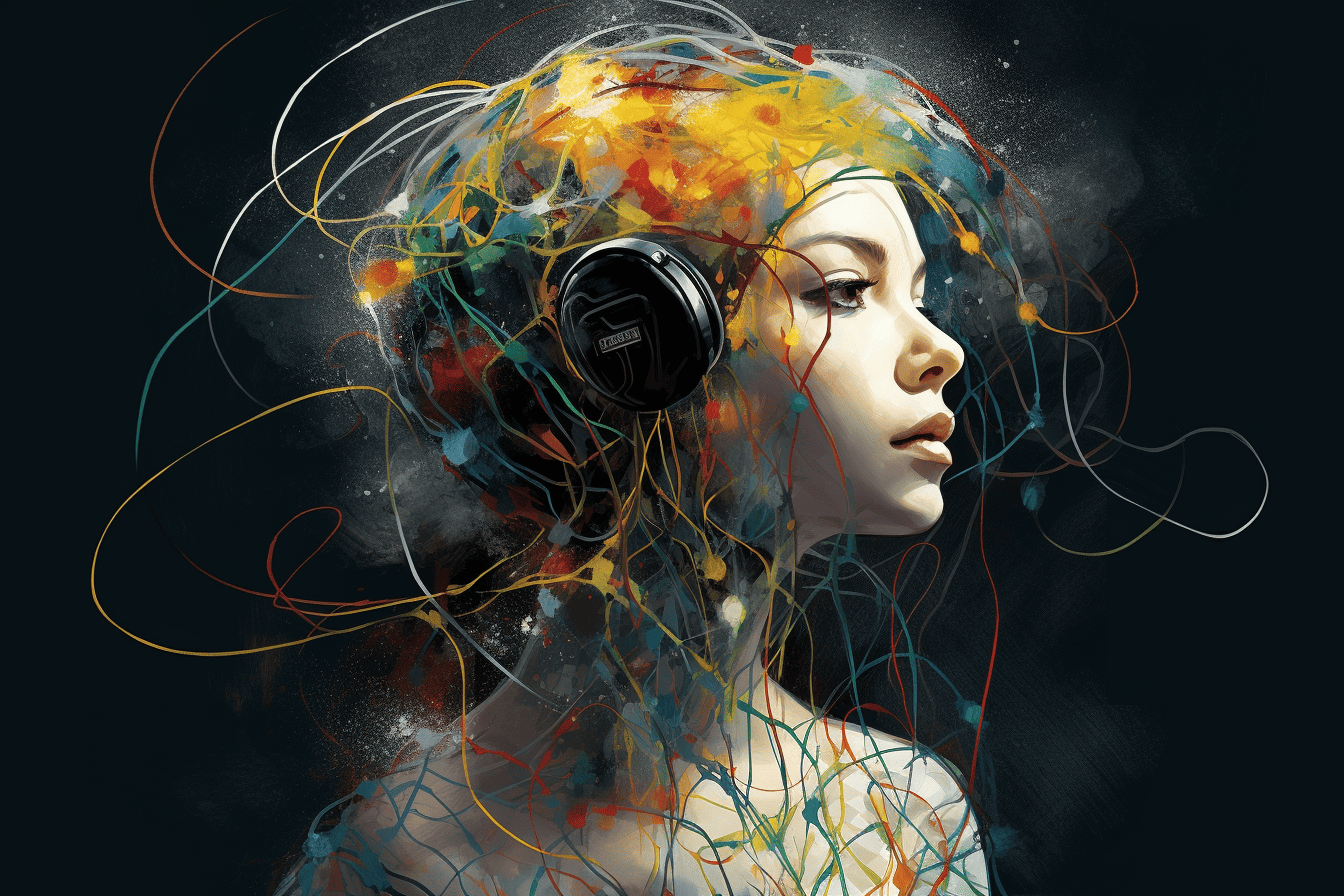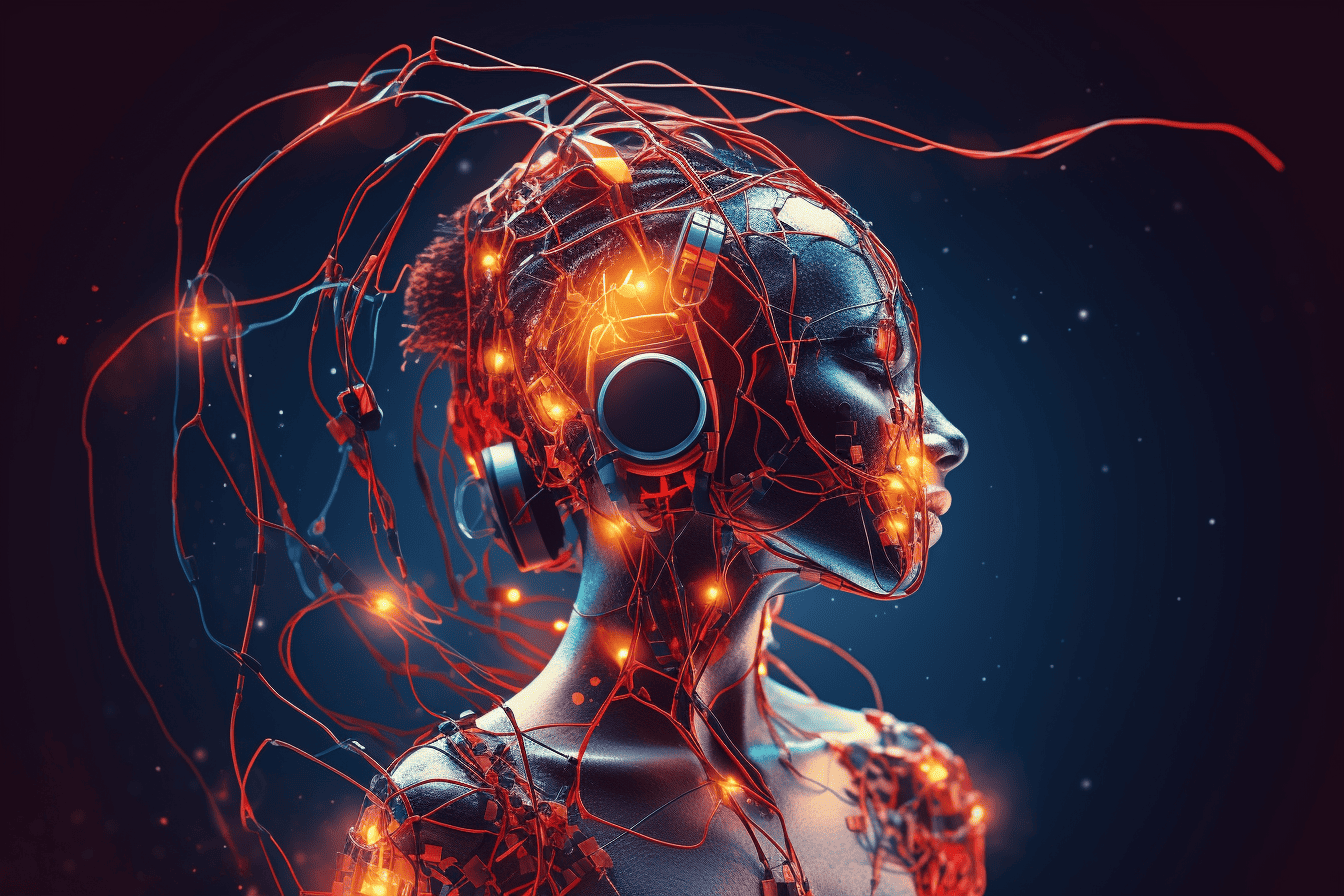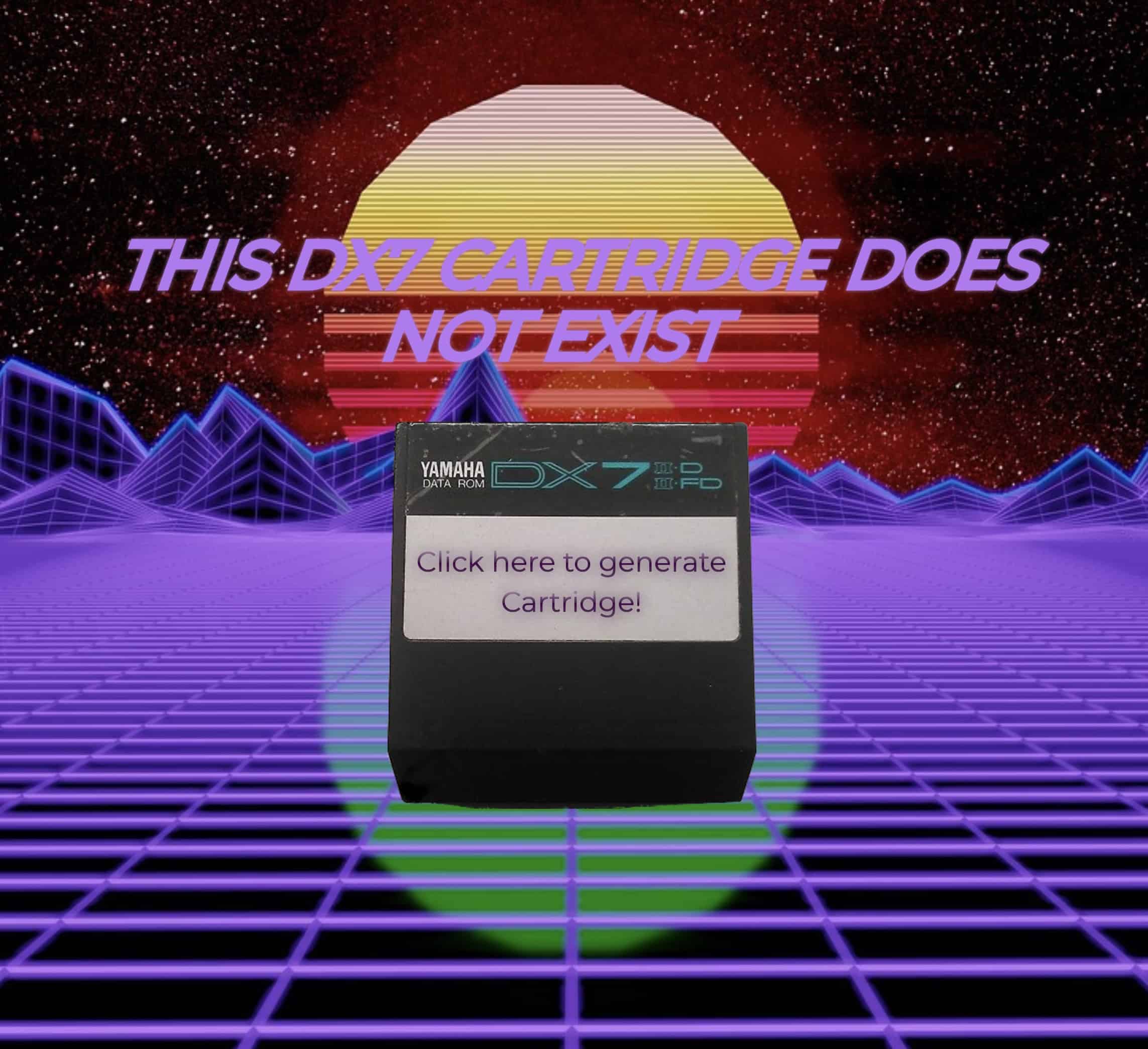In recent years, Artificial Intelligence (AI) has revolutionized the music industry. From creating new genres to allowing artists to explore their sound in never-before-seen ways, AI has been a powerful tool for musical creativity.
Now, AI is taking things one step further: creating its own music and even generating digital “artists” with distinct personalities and styles. This idea of AI-generated artistry is a controversial new frontier for music that raises questions about ethics and the future of creativity.
With eyes wide open and curiosity piqued, let us dive into this fascinating – yet somewhat unsettling – phenomenon.
Overview of AI-Generated Music
With the advent of tech-savvy tools, we’re seeing a fresh wave of audio creativity sweep across the scene. AI-generated music is at the heart of this emerging trend. It involves machines that can process data and generate new pieces of art based on algorithms and machine learning.
This type of music has an emotional appeal for many listeners because it isn’t limited by conventional boundaries or expectations. It also enables musicians to explore creative possibilities that have never before been possible with traditional methods.
AI-generated music has the potential to revolutionize how we create and consume musical art, but it comes with its own set of concerns and considerations.
Advantages of AI-Generated Music
By utilizing advanced technology, the prospect of having songs crafted by a non-human source is becoming increasingly more attainable, stirring up excitement in the world of sound.
With music curation and AI control, advantages to this new development include:
- More efficient and quick creation of music with fewer resources required.
- A larger variety of sounds and genres that can be explored due to a lack of limitations from human producers.
- The potential for more consistent quality in production given AI’s ability to learn quickly from data inputs and make adjustments without bias or fatigue.
The possibilities are truly endless when it comes to creating music through artificial intelligence, making it an attractive option for those looking for creative ways to express themselves musically while taking advantage of modern technology.
As such, it’s no wonder why there’s been so much buzz around this relatively new frontier – one which could potentially revolutionize how we create music in the future.
Disadvantages of AI-Generated Music
As the technology continues to advance, so do the potential drawbacks of having music produced by machines, such as a lack of human emotion and creativity. AI-generated artists are limited in their ability to think outside the box and create something truly unique because they work from datasets that may not reflect cultural or societal changes.
Furthermore, there is an intellectual property issue when it comes to AI-generated music: who owns the rights to a song created by a machine? Additionally, data privacy becomes an important factor when considering how much we can trust these artificial intelligence-driven programs with our personal information.
AI-generated musicians also have difficulty connecting with audiences on an emotional level. Live performances cannot be replicated by robots and humans crave connection through shared experiences that machines cannot provide. As a result, many people find AI-generated music lacking in comparison to organic creations crafted by human hands and minds.
Without proper safeguards in place regarding data security and intellectual property rights, this new technology could become a hindrance rather than an asset for those looking to make their mark in the music industry.
Ethical Implications of AI-Generated Music
As the rise of AI-generated music continues to gain momentum, it’s essential to consider the ethical implications that accompany this new frontier.
In particular, copyright issues and the debate between creativity versus automation are two main topics of discussion.
In the wake of these discussions, it’s important to consider how we can define a fair balance between human artistic expression and machine-generated art.
Copyright Issues
With the ever-growing prevalence of AI, copyright issues are now a hot topic – and not just in the music industry!
From films to software, artificial intelligence is quickly becoming an integral part of many industries. As such, intellectual property rights become increasingly important as these AI-generated works are created.
One of the key questions posed by this new technology is whether or not AI can be held accountable for infringement on existing copyrights. With machine learning capabilities allowing for more accurate recreations that could potentially be mistaken for originals, the issue is far from black and white.
Additionally, there’s growing concern about whether those who program the AI should be held responsible for any potential infringements.
As this technology continues to evolve and become more prevalent, it’s certain that copyright issues will remain at the forefront of discussions around artificial intelligence and its influence on creative works.
Creativity vs. Automation
As copyright issues surrounding AI-generated music continue to be debated, another question arises: creativity vs. automation.
While some view the rise of artificial intelligence in music as a creative force, others are concerned about its potential to reduce the amount of human creativity required for making new and innovative art. The cultural impact of this technology is undeniable, as it could lead to a future where much of our music is composed by algorithms instead of humans. This raises several accountability questions regarding who can or should be held responsible if something goes wrong with an AI-created piece of music.
At the same time, there are those who argue that this technology could open up entirely new possibilities for musical expression and provide musicians with tools they never had before. It could also introduce us to sounds we’ve never heard or even imagined before, and challenge humanity’s boundaries when it comes to creating art.
Yet despite these potential benefits, there is still much debate about how far AI-generated music should go when it comes to replacing human creativity in the world of music composition and production. With so many unknowns about what lies ahead for this rapidly growing industry, it remains unclear how AI-generated music will shape our culture in the years ahead.
The Future of AI-Generated Music
Looking ahead, AI-created music has the potential to revolutionize the way we experience sound. As machine learning and algorithm development continue to progress, so does AI’s ability to create innovative pieces of music that are indistinguishable from those produced by human musicians.
With advancements in neural networks, AI can now analyze audio samples to develop complex musical structures based on what it learns from its data sets. It can also generate musical arrangements using pre-existing recordings or even use sophisticated algorithms to create new melodies and rhythms. This opens up a whole new world of possibilities for creating unique compositions that have never been heard before.
The implications for the future of music production are far reaching and could potentially change the landscape of the industry as we know it. By providing more accurate representations of emotion, sentiment and intentionality in music through AI-generated works, artists will be able to explore sounds that would not be possible with traditional methods.
Additionally, automated processes could lead to faster production times with fewer errors in composition, freeing up time for creative experimentation in other areas. As technology continues to evolve at an ever-accelerating rate, this will undoubtedly lead us into a new era of sonic exploration powered by artificial intelligence.
Frequently Asked Questions
What are the different types of AI-generated music?
AI-generated music is quickly becoming more popular among artists and producers. It’s fascinating how this technology can be used to create musical pieces without relying on traditional instruments or manual composition techniques.
AI generated lyrics and creative algorithms are used to create music that can range from simple looped beats to complex compositions with intricate harmonies. With AI-generated music, the possibilities are endless and innovation is always just around the corner.
So, what are the different types of AI-generated music?
How do AI-generated artists compare to traditional artists?
Having recently entered the music industry, AI-generated artists have been a topic of great debate. From a human machine collaboration standpoint, these data-driven compositions offer an unprecedented level of creative opportunities.
But with this new frontier comes questions about how these technological advancements compare to traditional artistry. It’s clear that AI-generated artists have their own unique approach and are leading us into a bold new era; one where innovative ideas meld seamlessly with the tried and true methods of generations before us.
What are the legal implications of AI-generated music?
As AI-generated music continues to rise in popularity, so too do the ethical and copyright debates surrounding it. Questions such as ‘who owns the rights to an AI-created song?’ and ‘what is considered original work if it was created by a machine?’ are becoming increasingly relevant topics of discussion.
Companies need to consider these implications when creating artificial intelligence programs that generate music, as there could be serious legal repercussions for those who don’t comply with copyright laws. It’s clear that this is an area in which innovation needs to be balanced with caution, and creative minds must find ways to ensure that artists’ work is respected while still making progress on this new frontier of music.
What is the cost of implementing AI-generated music?
As the use of AI-generated music becomes more popular, so does the cost associated with it. Ethical considerations need to be taken into account when using automated royalties and creating new works of art.
It’s important to remember that while implementation can be costly, it is essential in order to ensure that creators are properly compensated for their work. Understanding the cost and implications of implementing AI-generated music is key to ensuring its success as a viable form of artistic expression.
What impact does AI-generated music have on the music industry?
As the music industry continues to evolve, so does the way music is created. AI-generated music has made its way into streaming services and copyright laws, bringing a new dynamic to the industry.
It’s a controversial topic for sure, as it challenges traditional production processes and can potentially devalue originality in the eyes of some. But with AI-generated music being more accessible than ever before, it’s also opened up new possibilities for creative innovation that’s never been seen before.
It may be controversial now but it could be an important factor in the future of music production and consumption.
Conclusion
The rise of AI-generated music has created a new field of music production with its own advantages and disadvantages. It has made it easier for anyone to make great sounding tracks, but there are still ethical implications that must be considered.
Despite this, the future of AI-generated music looks bright, as more and more people from all walks of life are turning to this technology to create unique musical experiences. It’s like a door opening into a brand new world full of possibilities – one that will no doubt continue to give us surprises in the years ahead.
As we step through the threshold together, let’s hold on tight and embrace what lies beyond – an uncharted landscape filled with exciting new sounds waiting to be discovered.










